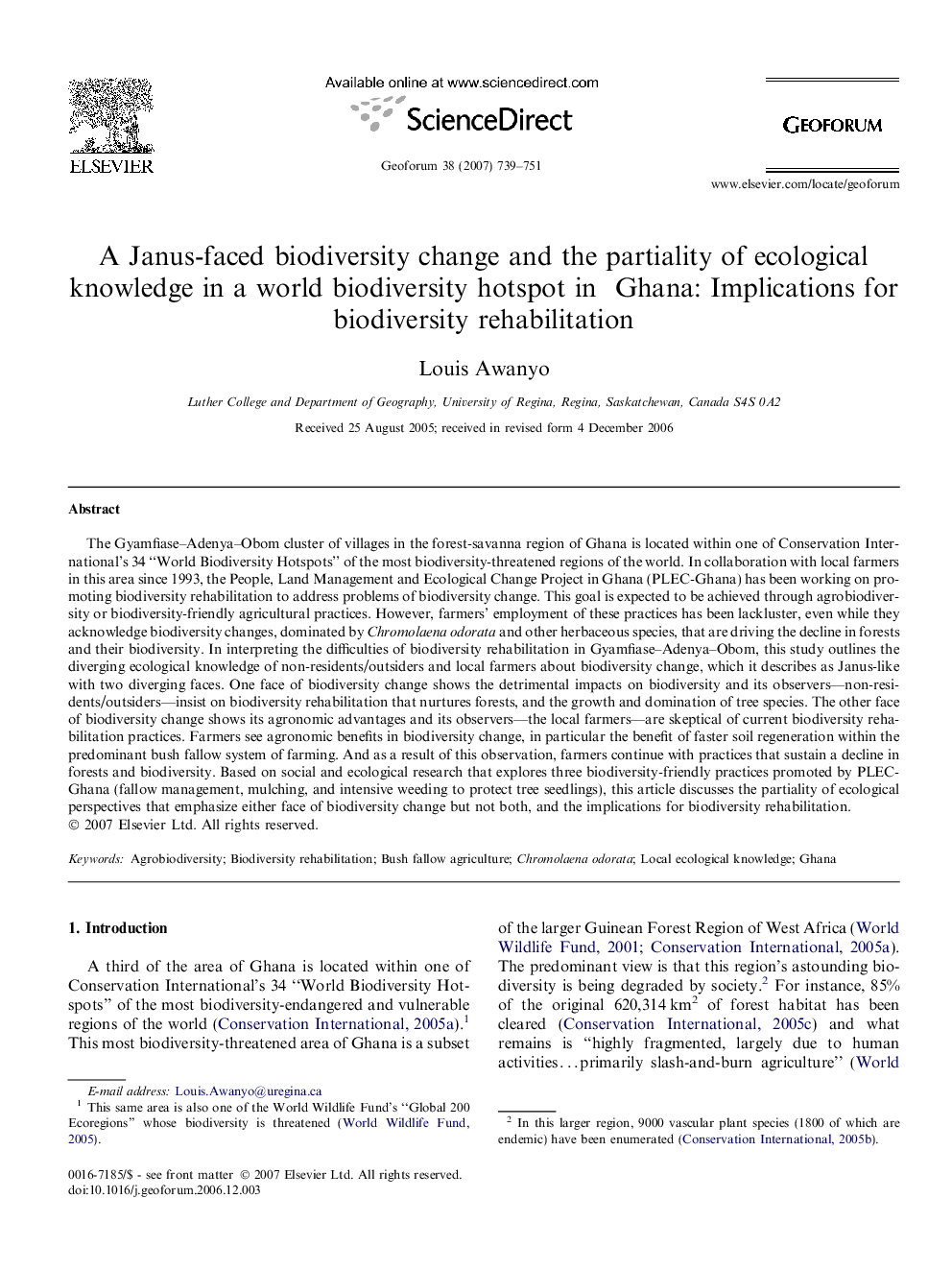| کد مقاله | کد نشریه | سال انتشار | مقاله انگلیسی | نسخه تمام متن |
|---|---|---|---|---|
| 5075200 | 1373734 | 2007 | 13 صفحه PDF | دانلود رایگان |
عنوان انگلیسی مقاله ISI
A Janus-faced biodiversity change and the partiality of ecological knowledge in a world biodiversity hotspot in Ghana: Implications for biodiversity rehabilitation
دانلود مقاله + سفارش ترجمه
دانلود مقاله ISI انگلیسی
رایگان برای ایرانیان
کلمات کلیدی
موضوعات مرتبط
علوم انسانی و اجتماعی
اقتصاد، اقتصادسنجی و امور مالی
اقتصاد و اقتصادسنجی
پیش نمایش صفحه اول مقاله

چکیده انگلیسی
The Gyamfiase-Adenya-Obom cluster of villages in the forest-savanna region of Ghana is located within one of Conservation International's 34 “World Biodiversity Hotspots” of the most biodiversity-threatened regions of the world. In collaboration with local farmers in this area since 1993, the People, Land Management and Ecological Change Project in Ghana (PLEC-Ghana) has been working on promoting biodiversity rehabilitation to address problems of biodiversity change. This goal is expected to be achieved through agrobiodiversity or biodiversity-friendly agricultural practices. However, farmers' employment of these practices has been lackluster, even while they acknowledge biodiversity changes, dominated by Chromolaena odorata and other herbaceous species, that are driving the decline in forests and their biodiversity. In interpreting the difficulties of biodiversity rehabilitation in Gyamfiase-Adenya-Obom, this study outlines the diverging ecological knowledge of non-residents/outsiders and local farmers about biodiversity change, which it describes as Janus-like with two diverging faces. One face of biodiversity change shows the detrimental impacts on biodiversity and its observers-non-residents/outsiders-insist on biodiversity rehabilitation that nurtures forests, and the growth and domination of tree species. The other face of biodiversity change shows its agronomic advantages and its observers-the local farmers-are skeptical of current biodiversity rehabilitation practices. Farmers see agronomic benefits in biodiversity change, in particular the benefit of faster soil regeneration within the predominant bush fallow system of farming. And as a result of this observation, farmers continue with practices that sustain a decline in forests and biodiversity. Based on social and ecological research that explores three biodiversity-friendly practices promoted by PLEC-Ghana (fallow management, mulching, and intensive weeding to protect tree seedlings), this article discusses the partiality of ecological perspectives that emphasize either face of biodiversity change but not both, and the implications for biodiversity rehabilitation.
ناشر
Database: Elsevier - ScienceDirect (ساینس دایرکت)
Journal: Geoforum - Volume 38, Issue 4, July 2007, Pages 739-751
Journal: Geoforum - Volume 38, Issue 4, July 2007, Pages 739-751
نویسندگان
Louis Awanyo,